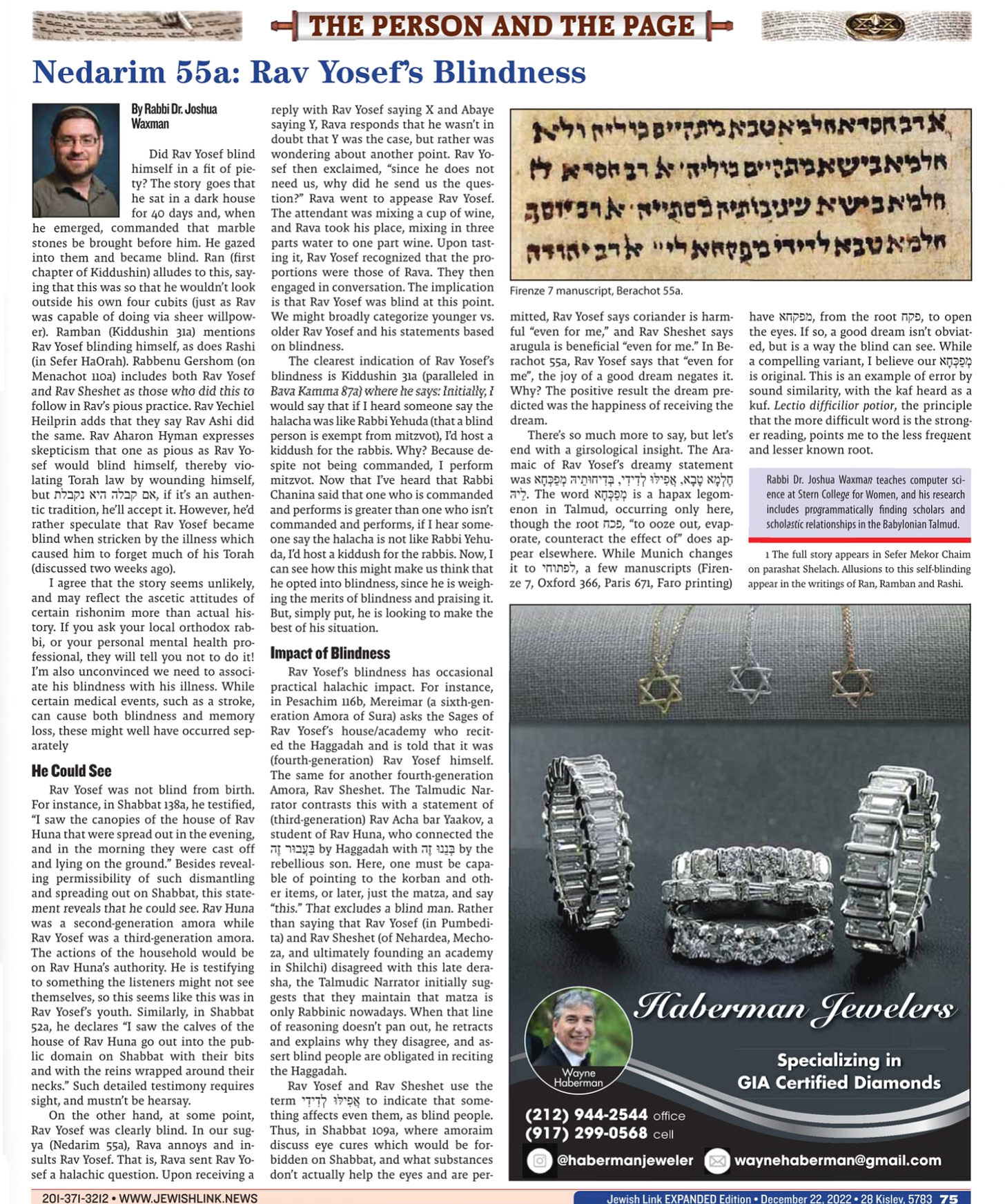My recent article for the Link focused on Rav Yosef’s blindness, how it wasn’t from birth, whether he caused it, and some halachic ramifications of his blindness.
One girsological issue I deal with is a fun one on Berachot 55a. A Talmudic refrain that blind people say about eye-related issues is that something impacts אֲפִילּוּ לְדִידִי, “even for me”. We see this for both Rav Sheshet and Rav Yosef.
There is a section where they try to lessen the significance of dreams. Thus, a good dream isn’t entirely fulfilled, and a bad dream isn’t entirely fulfilled. The dream will follow its interpretation, so all you need to do is find a positive interpretation of what initially seemed to you like a bad dream. Rav Chisda says that for a bad dream, the sorrow causes by having it is enough of the “bad” fulfillment. The same for the joy of a good dream. Then Rav Yosef says, “Even for me, the joy of a good dream negates it.” The idea is that the good dream predicted a good thing would happen. Then the person had emotional satisfaction of having had this good dream, plus perhaps the anticipation of a good thing happening. But the good thing happening was the experience of having the good dream.
The “even for me” may indicate that his dream experience was muted, or people might have assumed that it would be muted. Yet apparently, blind people do have visual images in dreams, though in different forms if blind from birth or later in life.
One variant (CUL: T-S AS 76.86) eliminates Rav Chisda for these two statements (though not earlier statements) and make both “bad” and “good” statements Rav Yosef.
Some variants attribute the “bad” statement to Rav Chisda, eliminate the “good” statement, and transition just to the “good” Rav Yosef statement. All of these also get rid of Rav Yosef saying “even for me”, which is the strong connection to his blindness which appears elsewhere in Talmud.
Several also alternate from the מפכח לי, where the root פכח means to evaporate, to mitigate the effects of. Two of note are Munich 95, which has לפתוחי. This shares the פ and ח, and perhaps the ח was also interpreted as a ת. Several also have מפקח, which would mean “make me sighted”. This would be a play on Rav Yosef’s blindness. Here is one such example, Firenze 7:
While this is such a great variant, I believe that מפכח is original, under the principle of lectio difficilior potior, the difficult reading is the strongest. No one knows what the infrequent term מפכח means, so a scribe is apt to mishear it (kuf for kaf) or correct it. Add in Rav Yosef’s blindness, and it is a compelling reinterpretation. But once we see from elsewhere the meaning of מפכח, it actually fits in best in context.






